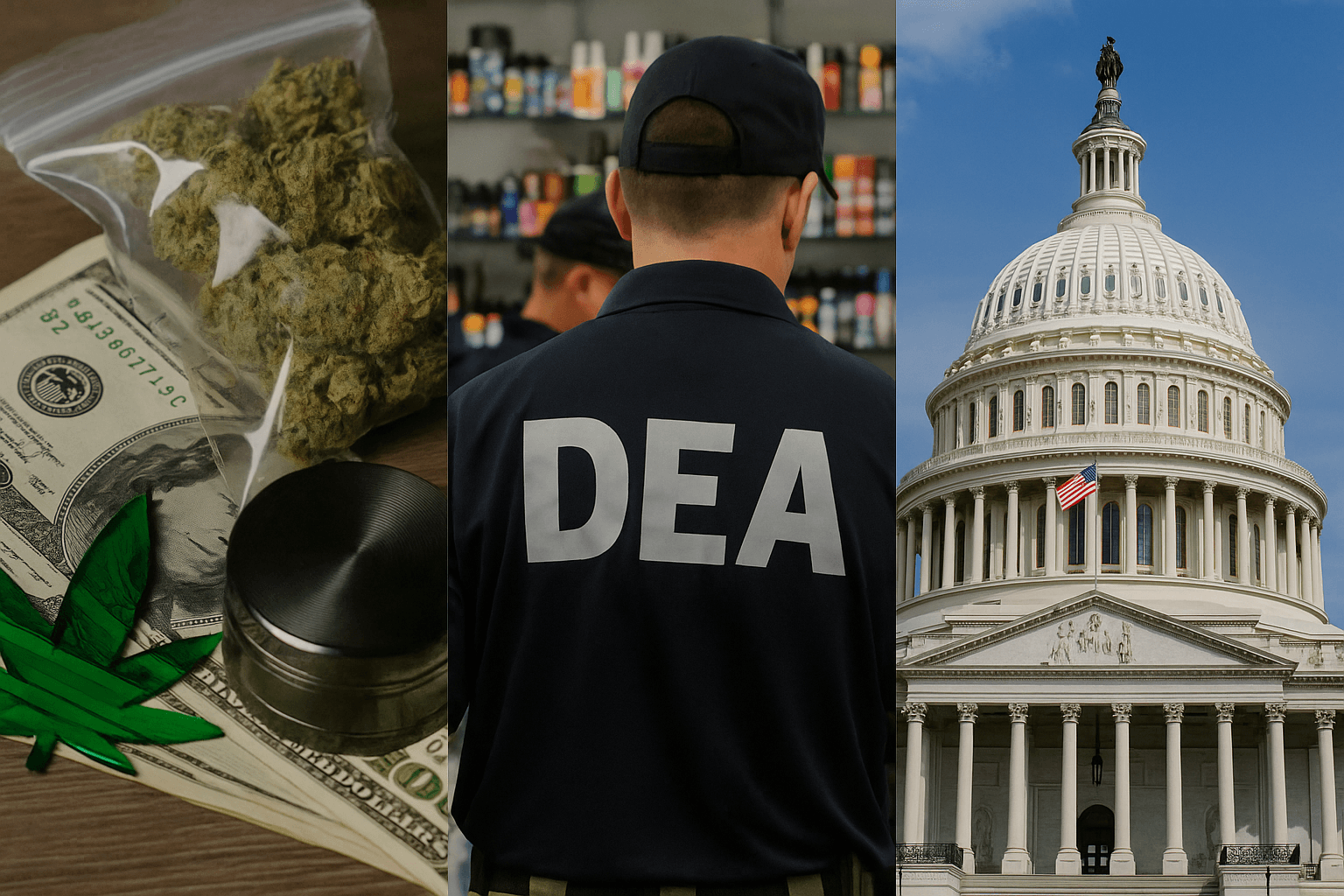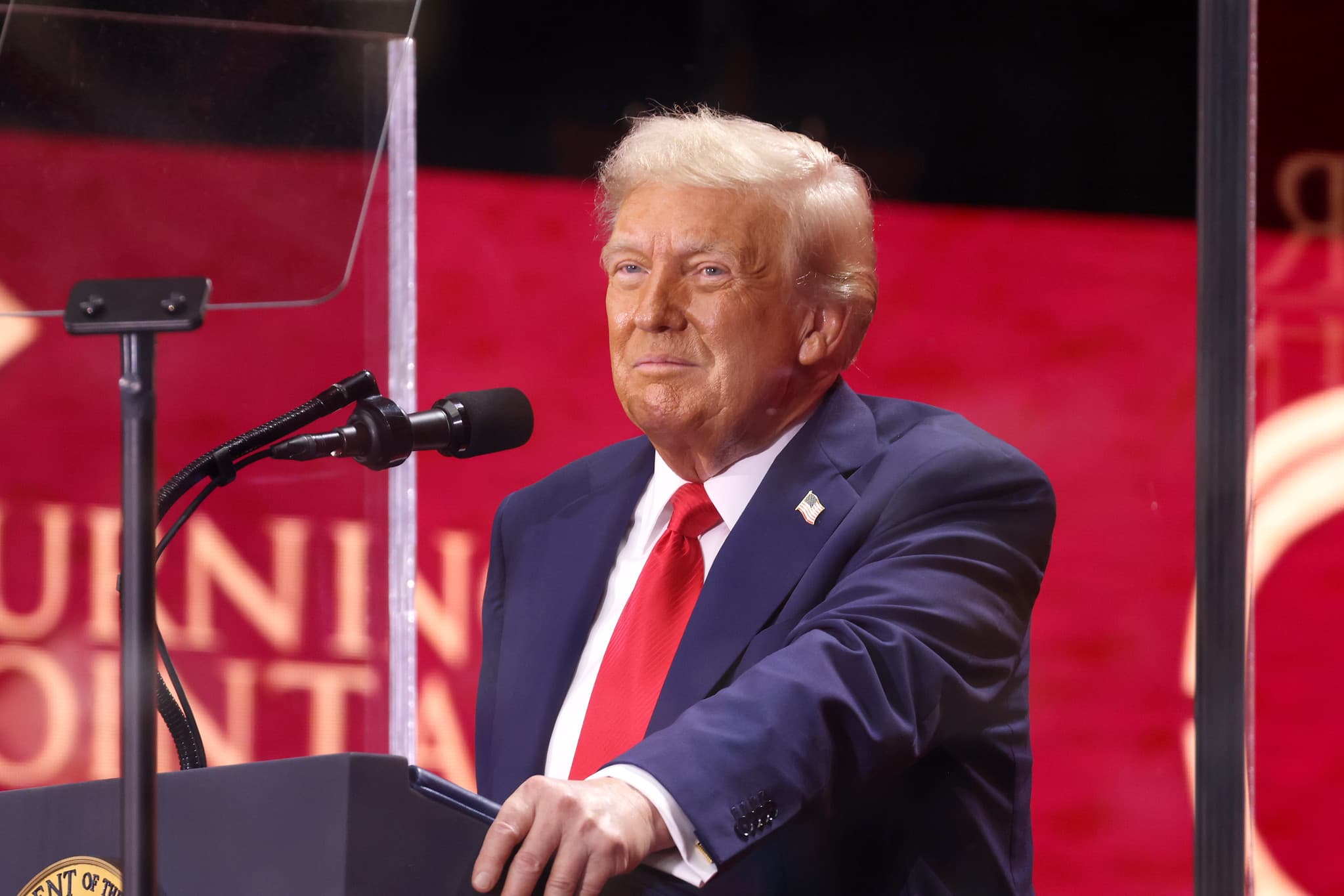California Cuts Cannabis Taxes as DEA Targets Vapes and Congress Tries to Block Rescheduling

The landscape for cannabis in the United States continues to shift on multiple fronts, with recent developments spanning state tax relief, federal enforcement, and congressional roadblocks to reform.
California Rolls Back Cannabis Tax Hike
California’s legal marijuana market received a boost this week after Governor Gavin Newsom signed legislation undoing a recent tax increase. The new law resets the state’s cannabis excise tax to 15 percent, down from the 19 percent rate imposed earlier this year, and maintains this rate until 2028.
Supporters say the rollback is essential to keeping licensed dispensaries afloat as they struggle to compete with the still dominant illicit market.
“We’re rolling back this cannabis tax hike so the legal market can continue to grow, consumers can access safe products, and our local communities see the benefits,” Newsom said.
California’s cannabis economy can bring enormous benefits to our state, but only if our legal industry is given a fair chance to compete against the untaxed and unregulated illegal market,” said Assemblymember Matt Haney (D–San Francisco). “AB 564 helps level the playing field. It protects California jobs, keeps small businesses open, and ensures that our legal cannabis market can grow and thrive the way voters intended.”
Industry advocates echoed the sentiment, arguing that the move will help preserve legal sales and discourage consumers from turning to untested products sold outside the regulated system.
Despite legalization nearly a decade ago, California’s legal market still accounts for only about 40 percent of cannabis consumption. State data indicate that taxable sales have declined from a peak of over $1.5 billion in 2021 to $1.2 billion four years later.
California is also cracking down on illegal cannabis. Since its creation in 2022 by Governor Newsom, the Unified Cannabis Enforcement Taskforce has carried out nearly 230 multiagency operations, seizing and destroying more than 317 tons of illegal cannabis valued at an estimated $890 million at retail.
DEA Crackdown on Vape Shops
Meanwhile, at the federal level, the Drug Enforcement Administration has launched a nationwide enforcement campaign against illegal substances sold in vape shops. Operation Vape Trail, conducted from September 15 to 19, 2025, resulted in the seizure of over 2.3 million vape devices and cartridges, $3.5 million in cash, $5 million in assets, and more than 100 firearms. The operation also led to 106 arrests.
DEA Administrator Terrance Cole emphasized that the initiative was aimed at protecting young people from hidden dangers in unregulated products. Agents reported finding synthetic marijuana, synthetic cathinones, and kratom derivatives marketed in colorful packaging designed to mimic candy and snacks.
The crackdown revealed the lengths some operators go to conceal illicit activity. In Texas, agents discovered a 25-foot deep tunnel hidden behind a vape shop.
Other raids turned up tens of thousands of THC cartridges and edibles, along with large stockpiles of marijuana and weapons. Investigators have also zeroed in on shops near military bases, many of which they say are operated by foreign nationals targeting service members.
Texas Cracks Down on THC Sales to Minors
Texas Governor Greg Abbott is moving to curb hemp sales to minors after vetoing a bill that would have banned hemp products altogether. Lawmakers had voted to outlaw hemp-derived THC, but Abbott blocked the measure, leaving the products legal. When the legislature later failed to reach a compromise during two special sessions, Abbott issued an executive order directing agencies to restrict access for underage buyers.
Following his order, the Texas Alcoholic Beverage Commission approved an emergency rule raising the purchase age to 21 for liquor license holders, including liquor stores and restaurants. Retailers must now check IDs, and violators will risk losing their licenses once enforcement begins on October 1.
The rule does not yet cover smoke shops, gas stations, or online sellers, which fall under the jurisdiction of the Department of State Health Services. That agency is expected to issue its own rules, potentially expanding restrictions to thousands more hemp retailers across the state.
Lieutenant Governor Dan Patrick, who supports a total ban, condemned Abbott’s approach as legitimizing what he calls a harmful industry.
Congress Blocks Path to Federal Rescheduling
In Washington, congressional Republicans are moving to stall efforts to reclassify marijuana under federal law. The House Appropriations Committee recently advanced a spending bill that prohibits the Department of Justice from using federal funds to reschedule or deschedule cannabis.
The measure comes as the Trump administration considers shifting marijuana from Schedule I to Schedule III under the Controlled Substances Act, a change that could ease tax burdens, allow more clinical research, and modestly expand access to banking services. Still, it would fall short of full legalization.
Because the federal government still treats cannabis as more dangerous than fentanyl, cocaine, or meth, legal corporations in the United States have been unable to deduct ordinary business expenses. IVN reported in April 2025 that this tax stranglehold has left them unable to compete with the criminal cartels that supply illicit cannabis. (IVN coverage, April 2025)
Republican lawmakers backing the funding restriction argue that rescheduling would benefit large cannabis companies and send the wrong message to young people. Their move injects new uncertainty into a process that began under the Biden administration but has since stalled.
Trump has been weighing whether and how to keep his campaign promise to reclassify cannabis under federal law.
On August 11, in a news conference held in the White House briefing room, he made very brief remarks:
“We're looking at reclassification, and we'll make a determination over the next -- I would say over the next few weeks, and that determination hopefully will be the right one. It's a very complicated subject.” (IVN coverage, August 2025)
Cole acknowledged rescheduling as a priority in his confirmation hearing, but would not specify the timing, leaving huge uncertainty. (IVN coverage, April 2025)
In July, Mike Tyson publicly urged Trump to “make good” on his rescheduling promise. (IVN coverage, July 2025)
 Cara Brown McCormick
Cara Brown McCormick







